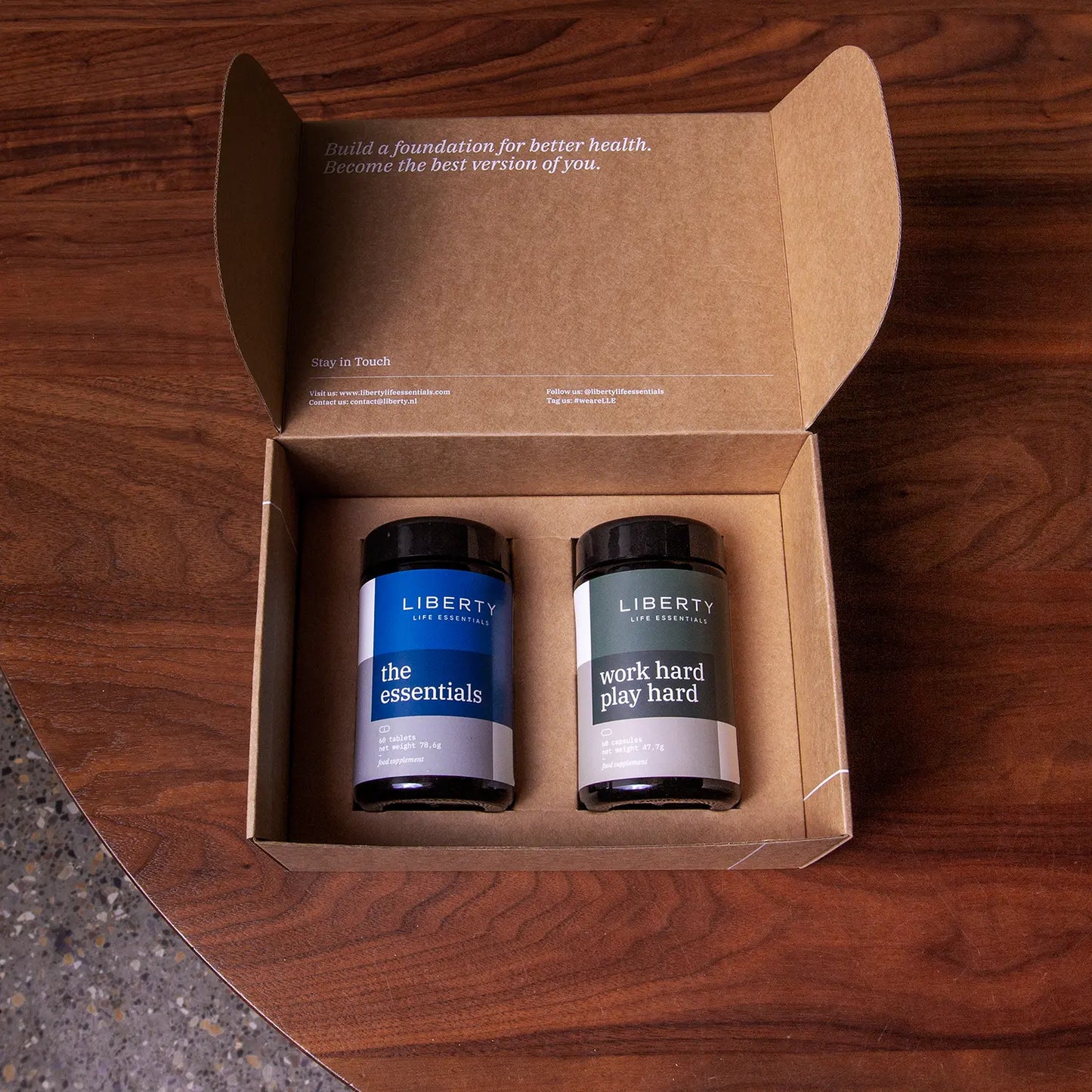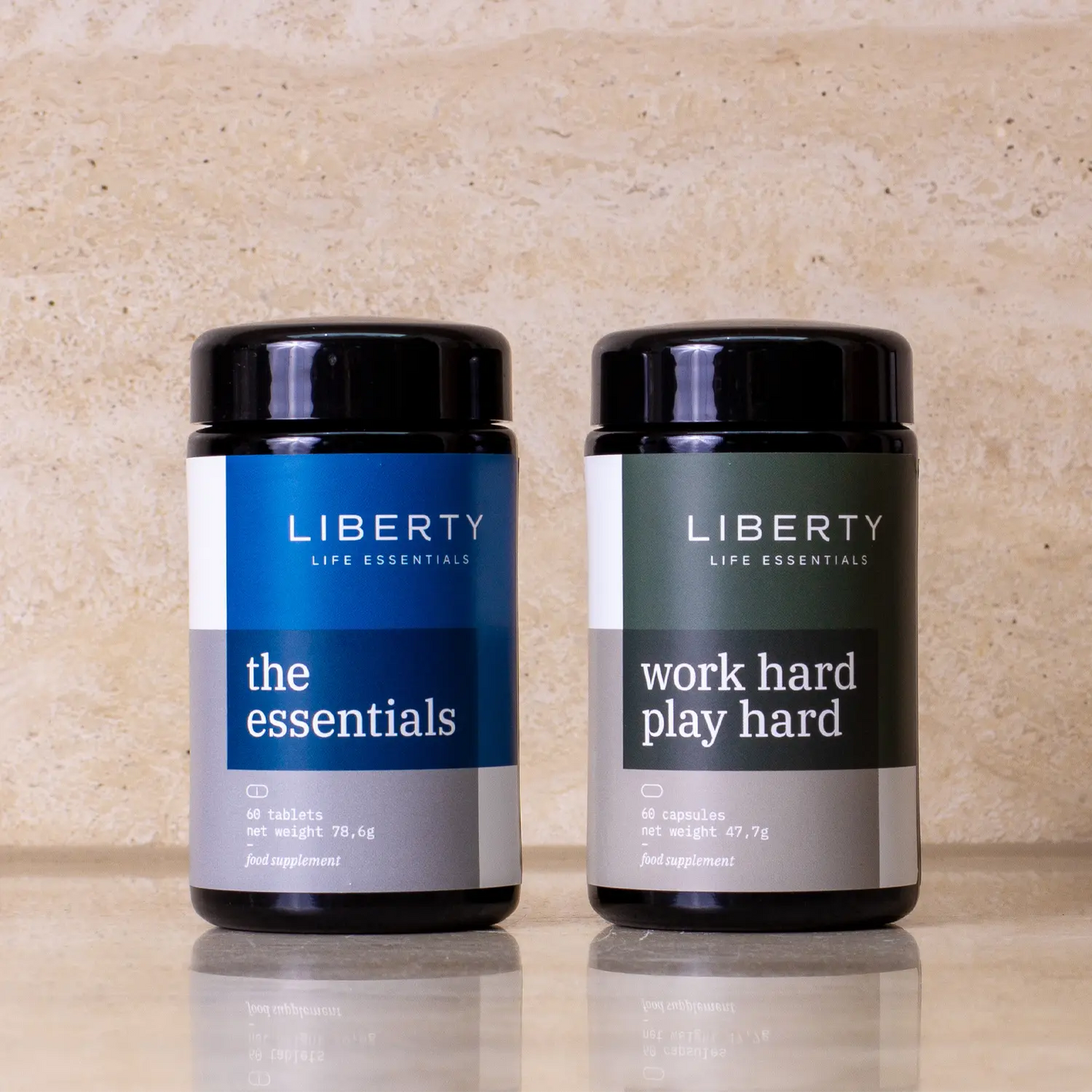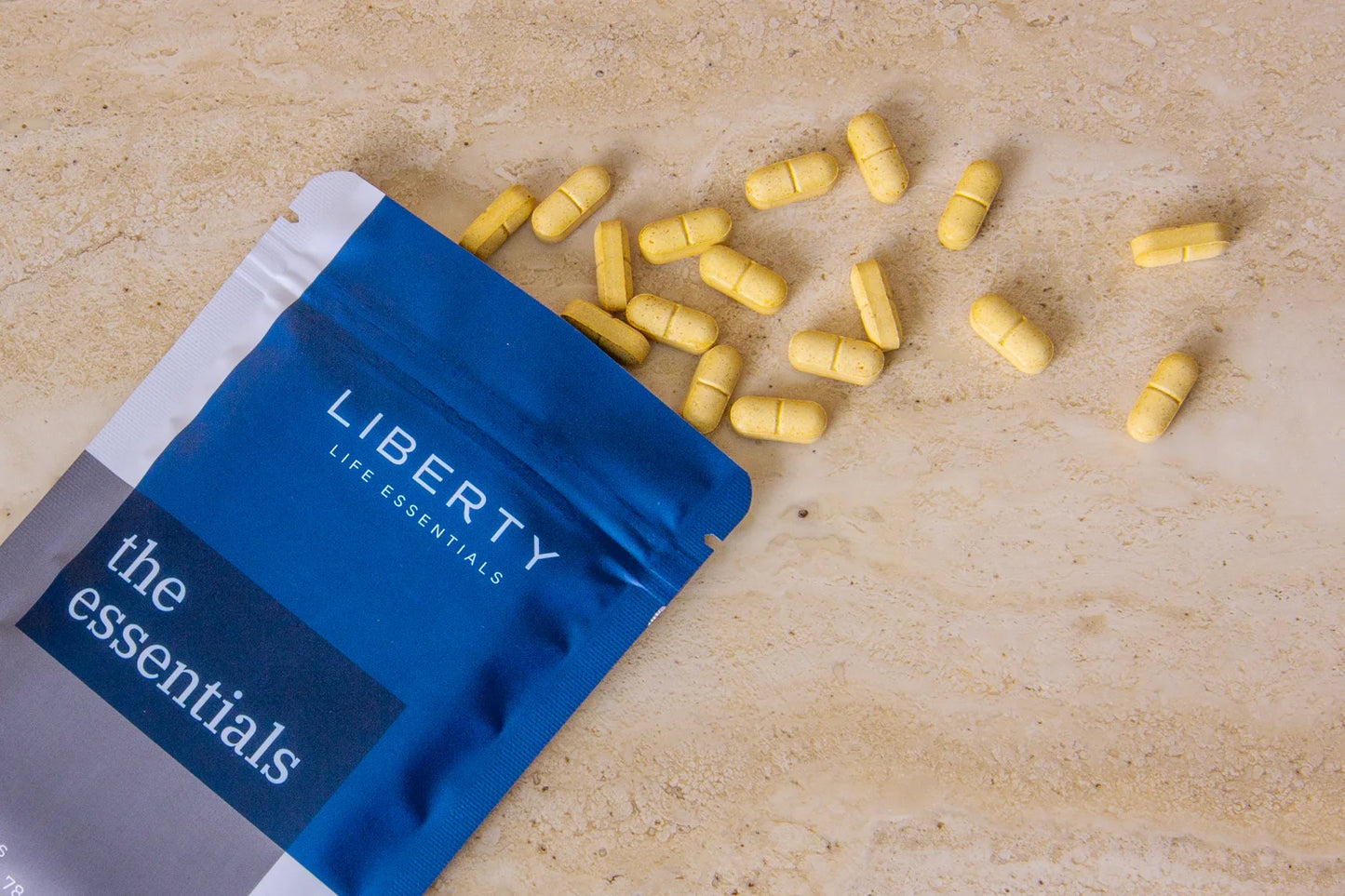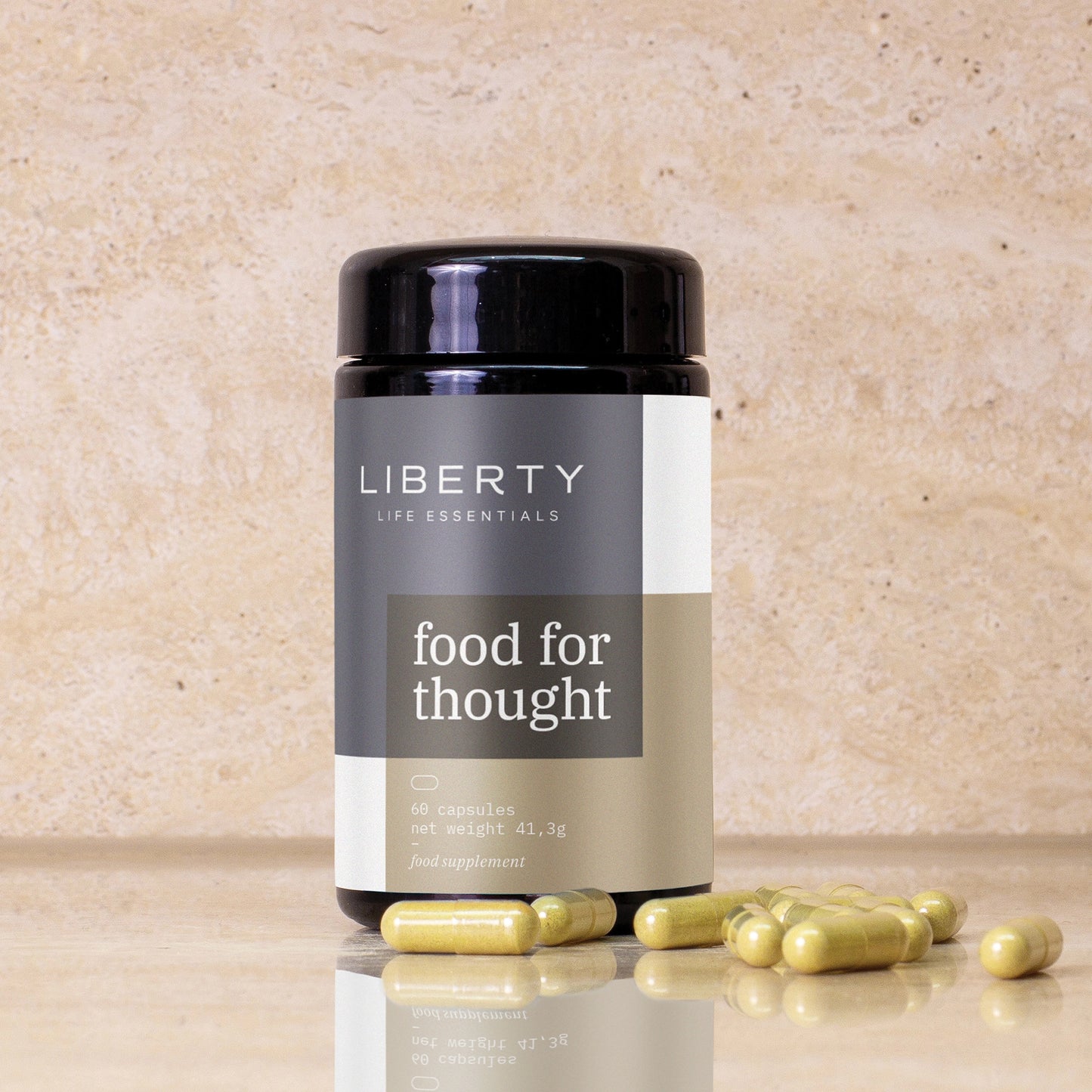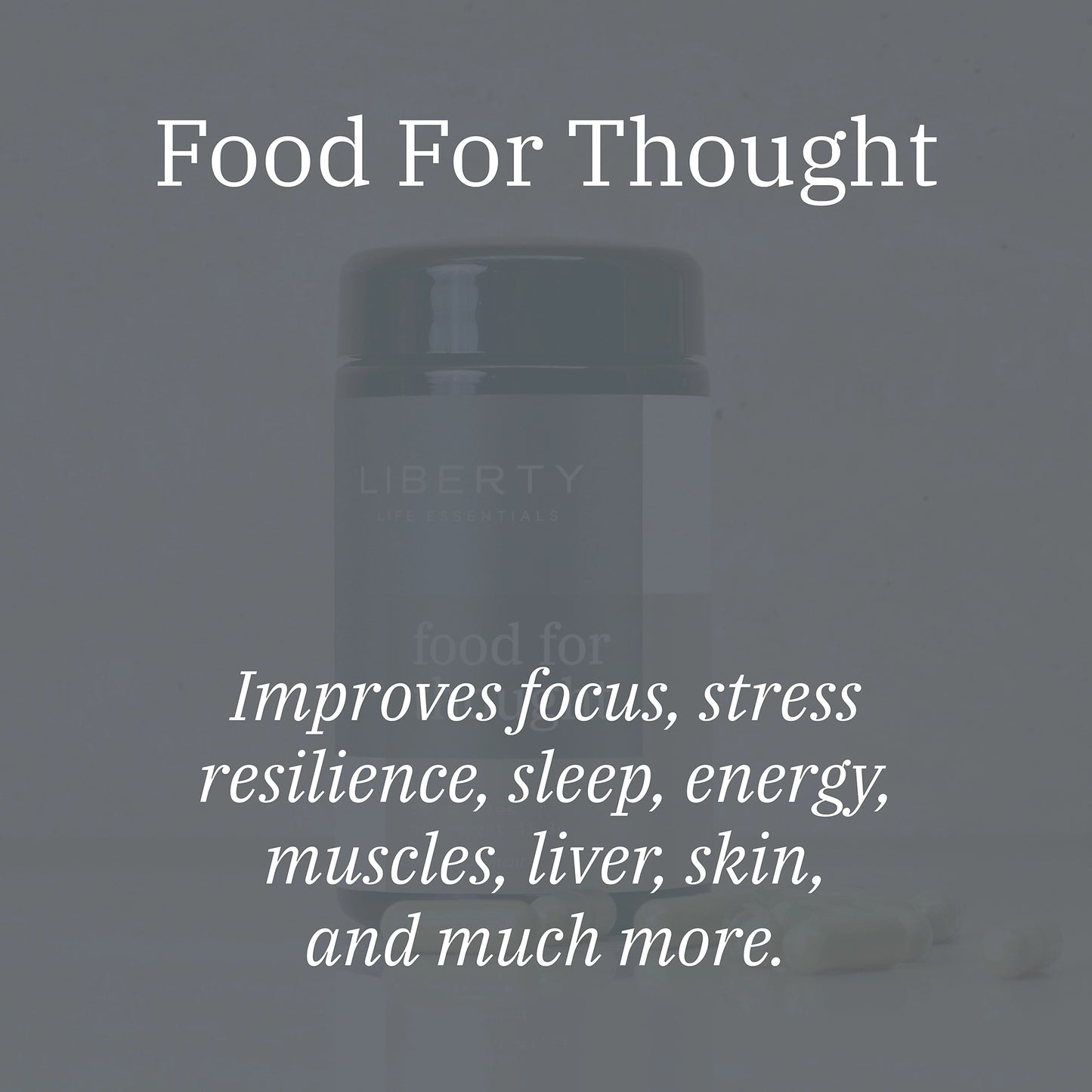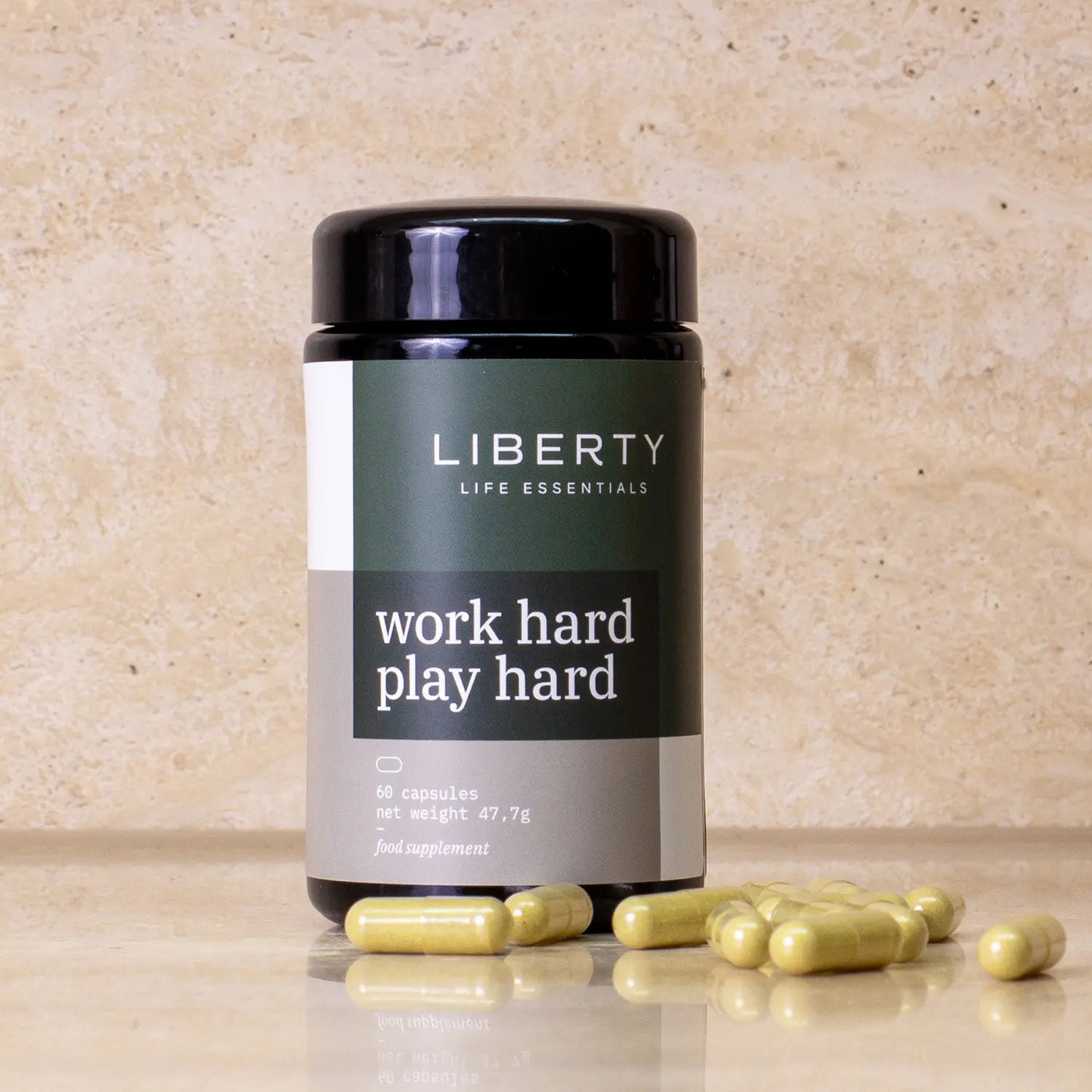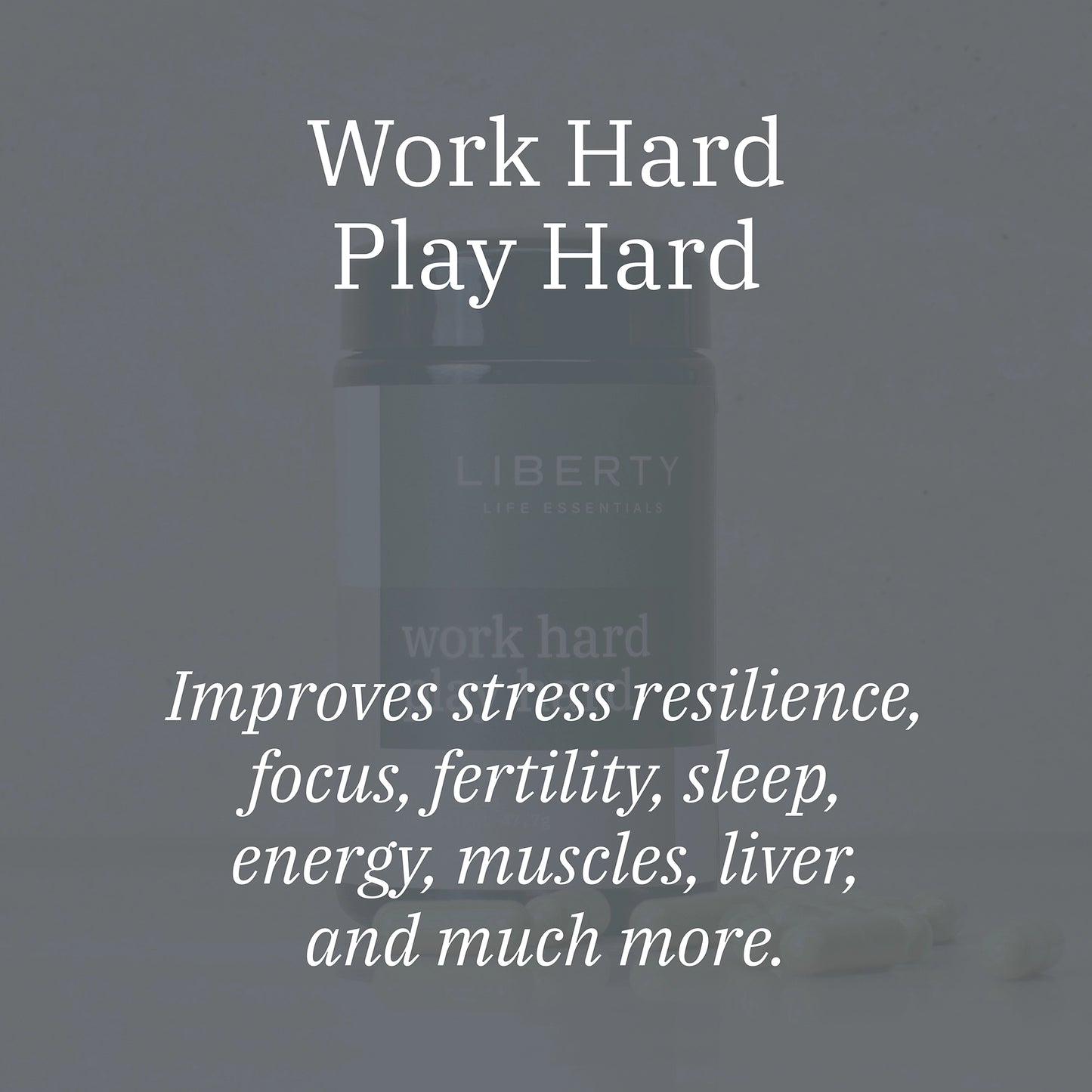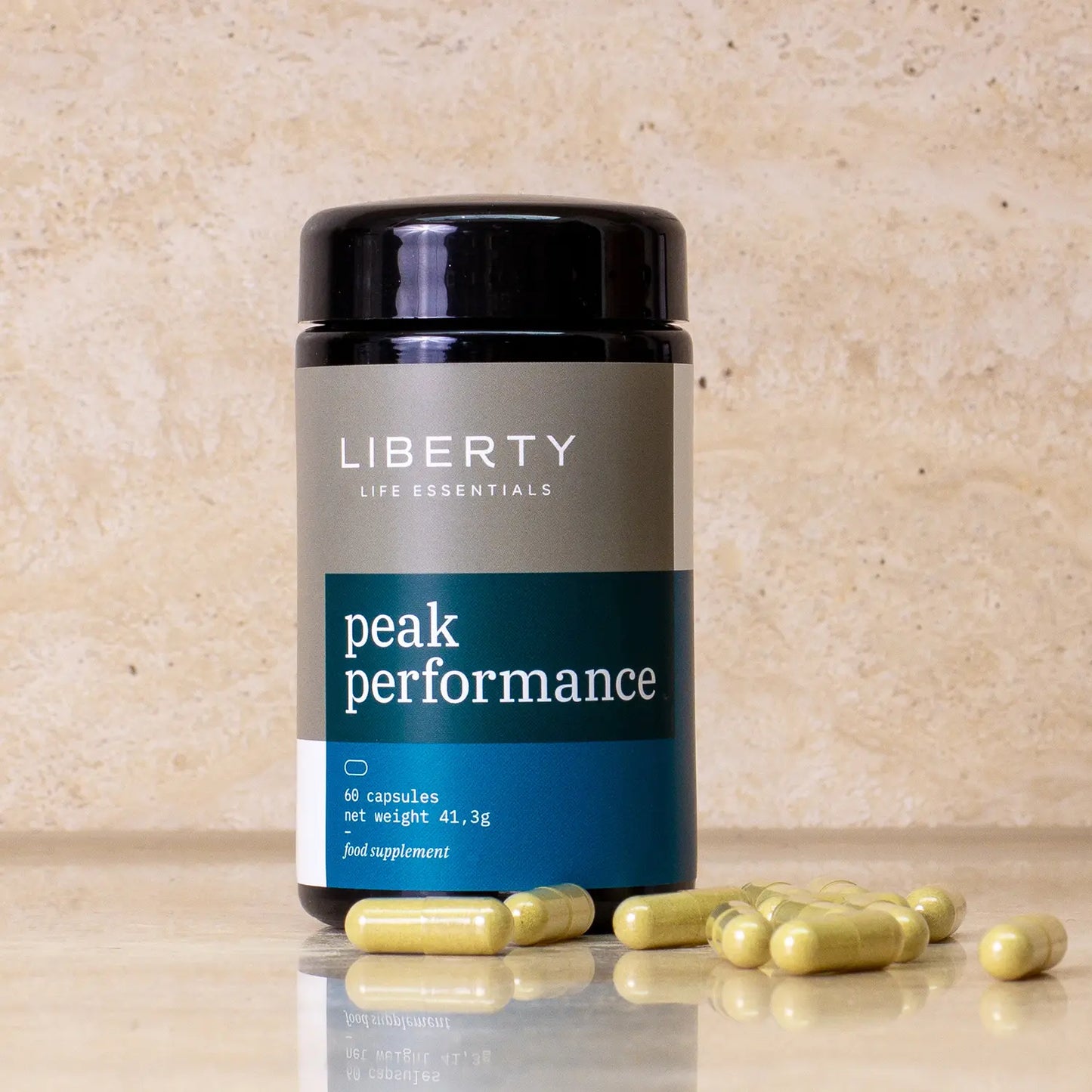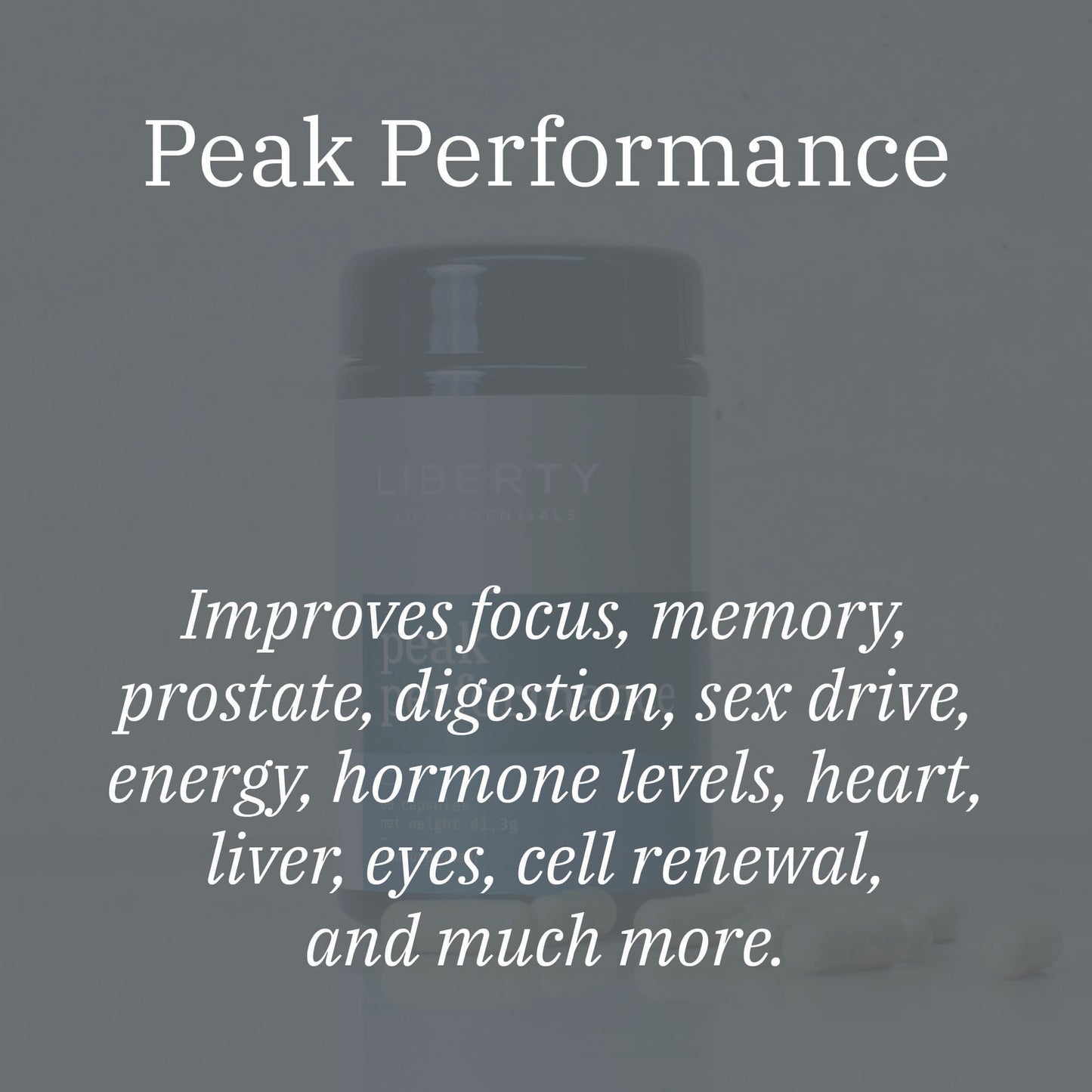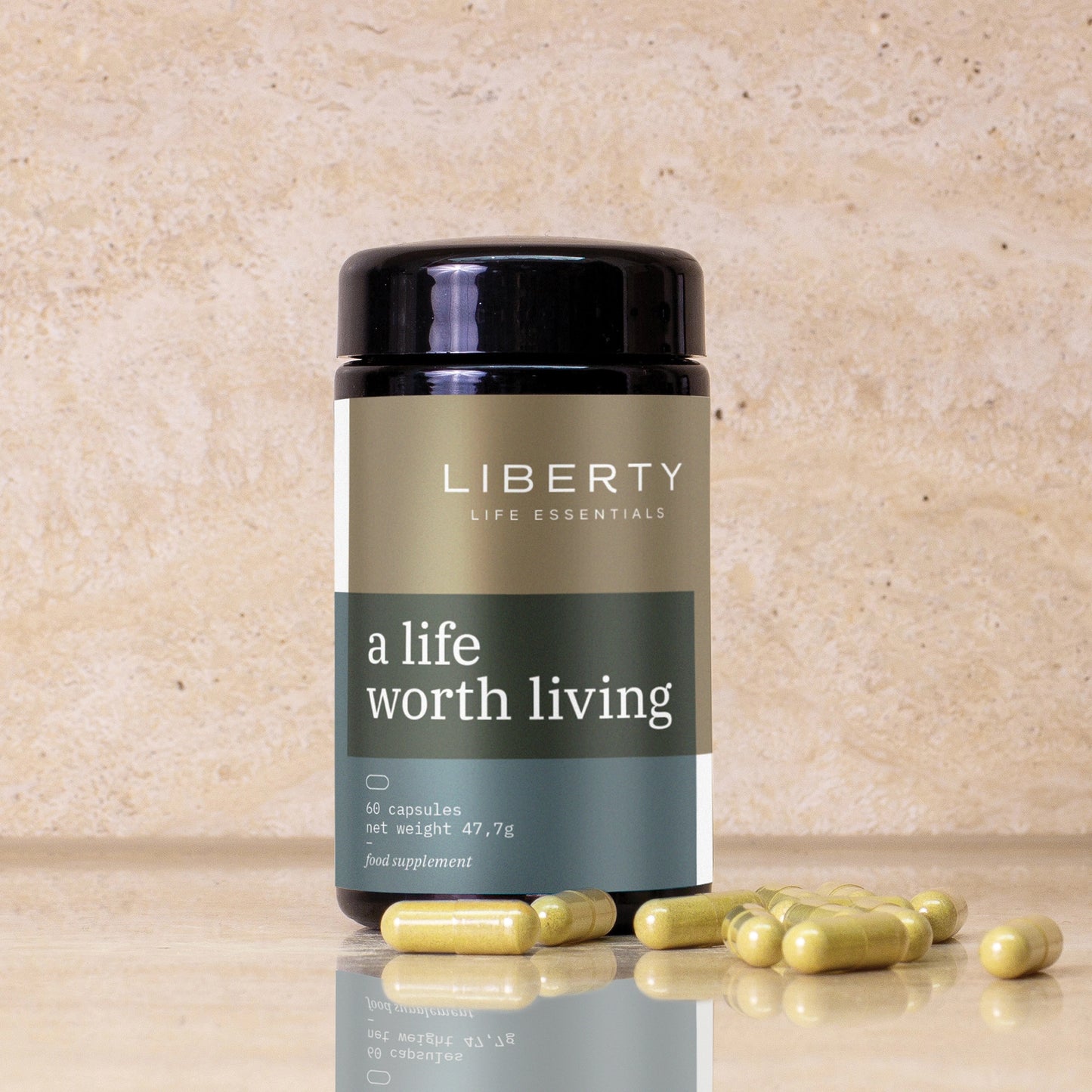The prostate is a small but essential gland in the male reproductive system. It produces seminal fluid, which aids in sperm transport. Located below the bladder and surrounding the urethra, its health affects urination and reproduction.
As men age, the prostate becomes more prone to conditions such as benign prostatic hyperplasia (BPH), prostatitis, and prostate cancer. These issues can lead to discomfort, chronic complications and even death. Understanding the underlying causes and making informed lifestyle choices can help reduce these risks.
This guide covers the most common health risks affecting the prostate, practical tips how to manage them, and how diet, lifestyle, and supplementation can support your prostate health.
Prostate Health Risks and How to Manage Them
While genetics play a significant role in prostate health, specific lifestyle choices can help reduce long-term symptoms and complications. Awareness is the first step towards prevention, after which a few simple tips can make a big difference.
Benign Prostatic Hyperplasia (BPH): An Enlarged Prostate
BPH, or an enlarged prostate, is common with aging. The enlarged gland can press against the urethra, causing more frequent urination (especially at night), weak urine flow, incomplete bladder emptying and unintentional leakage. While not life-threatening, it can significantly impact our daily life and confidence. The prevalence of BPH increases significantly with age, affecting over 50% of men above 50.
Practical tips to manage your BPH:
- Reduce “diuretic” beverages: A diuretic is anything that stimulates the kidney, causing increased urination and pressure on the prostate. Specifically alcohol and caffeine should be avoided at least 3-4 hours before bed to reduce nightly urination.
- Try “double voiding”: If you often feel like your bladder isn't empty after urination, try pausing for a few seconds and attempting to urinate again (called double voiding). This simple technique can help ensure your bladder is fully emptied and may reduce frequent trips to the bathroom.
- Be mindful of medication: Some blood pressure medication, antidepressants, and decongestants can worsen BPH symptoms. Consult your doctor if you suspect medication is affecting your condition.
- Reduce leakage with “Kegel exercises”: Train the muscle used to stop urine flow, by flexing it for 5-10 seconds, and release. Repeat 10 times, three to four times daily for better bladder control.
Prostatitis: An Inflamed Prostate
Prostatitis refers to inflammation of the prostate. It can be contracted through bacterial infections from the urinary tract, sexually transmitted infections or as a side effect from other prostate conditions. Symptoms include pelvic pain, painful urination and difficulty emptying the bladder. Over 50% of men will experience some form of prostatitis in their lifetime, while roughly 8% of European men suffer from chronic (non-bacterial) prostatitis.
Practical tips to manage your prostatitis:
- See a doctor: If you regularly experience painful urination or pelvic pains, it could mean that you have a bacterial prostatitis. Your doctor will test your urine and prescribe antibiotics if necessary. Always complete the entire prescription (usually 4-6 weeks) or the bacteria might return.
- Hydrate well: Drinking enough water dilutes urine and helps flush the bacteria and other causes from your bladder. Aim for 2 litres of liquids per day.
- Relax the area around the prostate: Soaking in a warm bath or applying heating pads help relax the prostate and bladder, improving urine flow and reducing inflammation.
- Reduce “diuretic” beverages: A diuretic is anything that stimulates the kidney, causing increased urination and pressure on the prostate. Specifically alcohol and caffeine should be avoided at least 3-4 hours before bed to reduce nightly urination.
- Reduce tension in the pelvic floor: Where Kegel exercises strengthen the pelvic floor muscle to better control urine flow, relaxation exercises such as deep diaphragmatic (belly) breathing help relax the pelvic floor muscle to reduce tension and irritation.
Prostate Cancer: Risk Factors and Early Detection
Prostate cancer is the most commonly diagnosed cancer in European men, making up 23.2% of all new cancer cases in 2020. That year it was responsible for 9.9% of cancer-related deaths, ranking as the second leading cause of cancer mortality among men in Europe. Risk factors such as age, family history, ethnicity, and lifestyle choices play a significant role in its development. Regular screenings, including PSA tests and digital rectal exams, are crucial for early detection and better treatment outcomes.
Practical tips to manage prostate cancer risks:
- Get screened regularly: Speak with your doctor about annual PSA testing from age 50 onwards, or earlier if there’s a family history of prostate cancer.
- Follow a Mediterranean-style diet: Rich in vegetables, fish, olive oil, and nuts, and low in red meat and processed foods, this diet is associated with lower cancer risk.
- Take specialized supplements: Certain nutrients, such as lycopene, saw palmetto, curcumin and pumpkin seed, can help reduce prostate cancer risk. Given the quantities required, they are best consumed in supplemental form.
- Limit calcium supplementation: While calcium is essential for bone health, excessive intake—especially through supplements rather than food—has been associated with a higher risk of prostate cancer. Stick to moderate dietary sources unless otherwise advised by your doctor.
- Monitor insulin sensitivity and glucose levels: Insulin resistance and elevated blood sugar have been linked to an increased risk of developing more aggressive prostate cancer. Managing blood sugar through diet and intermittent fasting may offer added protection.
Diet and Lifestyle Tips to Reduce Prostate Health Risks
Taking control of your prostate health starts with daily habits. The right diet, exercise, and lifestyle choices can help reduce risks and support prostate longevity. The following tips can help improve your prostate health through small daily changes.
1. Maintain Hormonal Balance to Reduce Prostate Enlargement
Hormone levels, particularly testosterone and DHT, play a significant role in prostate growth and the development of cancer cells. Keeping these hormones in check can help prevent enlargement and associated symptoms.
- Eat Zinc-Rich Foods: Zinc helps regulate testosterone and DHT levels, potentially preventing prostate growth. Zinc-rich food sources include oysters, lean beef, lentils, chickpeas and eggs.
- Reduce Stress: Chronic stress increases cortisol levels, which can negatively impact hormonal balance and prostate health. Daily breathing excises or a nature walk during lunch breaks can make all the difference.
- Develop a stable sleep pattern: Sleep is essential for regulating hormone production, including those that impact prostate function. Go to bed at fixed times and aim to sleep 7-8 hours per night for best results.
2. Stay Hydrated for Urinary Health
Proper hydration is essential for maintaining healthy prostate and bladder function. Dehydration can lead to urinary irritation and discomfort.
- Drink Enough Water: Hydration supports healthy urine flow, flushing out bacteria and reducing the risk of urinary tract infections. Aim to drink 2 litres of liquids per day.
- Limit Bladder Irritants: Reducing caffeine, alcohol, and spicy foods can help minimize urinary urgency and discomfort caused by an inflamed prostate.
- Time Your Fluid Intake: Avoid drinking large amounts of fluids before bedtime to reduce nighttime urination, a common symptom of BPH.
3. Optimize Your Diet for Prostate Support
A prostate-friendly diet plays a crucial role in reducing inflammation and lowering the risk of prostate enlargement and cancer.
- Eat Lycopene-Rich Foods for Prostate Cancer Protection: Lycopene, an antioxidant found in a.o. tomatoes, watermelon and pink grapefruit, is linked to a reduced risk of prostate cancer. It helps protect prostate cells by neutralizing free radicals and slowing abnormal cell growth.
- Increase Cruciferous Vegetables to Balance Hormones: Green vegetables such as broccoli, kale, and Brussels sprouts contain sulforaphane and indole-3-carbinol, compounds that support hormone regulation and help reduce DHT levels.
- Limit Processed Meats and Full-Fat Dairy to Lower Cancer Risk: Diets high in processed meats and saturated fats have been associated with increased inflammation and a higher risk of aggressive prostate cancer. Choose lean protein and plant-based fats instead.
4. Exercises to Support a Healthy Prostate
Staying physically active helps regulate hormones, improve circulation, and manage body weight, all of which support prostate health.
- Strength Training and Cardio for Hormonal Balance: Regular aerobic and resistance exercises can help reduce DHT levels and support balanced testosterone levels, both of which are important in preventing prostate enlargement.
- Pelvic Floor Exercises to Improve Urinary Control: Kegel exercises strengthen the muscles around the bladder and prostate, reducing urinary leakage and urgency, especially for men with BPH. Pelvic floor relaxation exercises on the other hand, help relax the pelvic area, which reduces prostatitis pains.
- Maintain a Healthy Weight to Lower Prostate Cancer Risk: Obesity, insulin sensitivity and heightened glucose levels are associated with an increased risk of advanced prostate cancer and worsens urination issues. Managing your weight through diet and exercise can reduce these risks.
5. Get Regular Prostate Screenings for Early Detection
Routine prostate checks are one of the most effective ways to catch issues like BPH or prostate cancer before they become serious.
- PSA and DRE Tests for Monitoring Prostate Health: PSA (Prostate-Specific Antigen) and DRE (Digital Rectal Exam) testing can help detect prostate changes early. Men over 50, or earlier if there’s a family history, should schedule regular screenings.
- Watch for Prostate Health Symptoms: Excessive urination, a weak stream, or pelvic discomfort may indicate a prostate issue. Reporting these symptoms to your doctor can lead to earlier discovery, more effective treatment and better outcomes.
Best Supplements for Prostate Health
While a balanced diet forms the foundation of good health, the average intake of prostate-protective nutrients falls short through a balanced diet alone. The following supplements can help bridge the gap and support long-term prostate health.
- Saw Palmetto: The powdered form of the seed of this palm tree has been shown to reduce levels of dihydrotestosterone (DHT), the hormone that contributes to prostate enlargement. It may ease common symptoms of BPH, such as frequent urination or weak urine flow, and help calm inflammation in the prostate. An added benefit is that it also helps prevent hair loss.
- Lycopene: Found in tomatoes and other red fruits, lycopene is a powerful antioxidant that protects prostate cells from oxidative stress. Research suggests it may also slow the growth of abnormal prostate cells and lower the risk of prostate cancer.
- Zinc: This essential mineral supports healthy testosterone and DHT balance while aiding cell repair and immune defence. Low zinc levels are often linked to enlarged prostates and reduced fertility in men.
- Curcumin (Turmeric Extract): Known for its anti-inflammatory properties, curcumin may help reduce chronic inflammation linked to prostatitis and BPH. It also interferes with tumor growth pahtways, supporting early prostate cancer prevention.
- Pumpkin Seed Extract: Rich in antioxidants, zinc, and plant sterols, pumpkin seed extract contributes to healthy hormone metabolism and may reduce both DHT levels and prostate cancer cell activity. It's also traditionally used to support bladder control and reduce nighttime urination.
Conclusion
Prostate health is influenced by diet, lifestyle, and routine screenings. By improving nutrition, staying active and hydrated, balancing hormones, and the occasional health screening, men can significantly reduce their risk of prostate-related conditions.
Several of the nutrients discussed in this guide, such as zinc and curcumin (C3 Complex®), are found in The Essentials, which provides foundational vitamins and minerals. Meanwhile, Peak Performance includes saw palmetto (SabalSelect®), lycopene, folate (Quatrefolic®), artichoke extract, Brahmi (Bacopin®), ashwagandha (KSM-66®), quercetin, and theanine to support prostate function, hormone balance, and cognitive health. These supplements can also be purchased together as the Adults Bundle, offering a 15% discount compared to buying them individually.
Sources:
· Venkatesh R.A. et al., "Lycopene and its Role in Prostate Health," Journal of Nutritional Biochemistry
· Thompson P.J. et al., "Effects of Saw Palmetto on Benign Prostatic Hyperplasia," Urology Journal
· Andrews M.S. et al., "The Impact of Zinc on Prostate Function," American Journal of Clinical Nutrition
· Robertson T.K. et al., "Curcumin as an Anti-inflammatory Agent in Prostate Health," International Journal of Molecular Sciences
· Smith D.L. et al., "Vitamin D and Prostate Cancer Risk," Cancer Epidemiology
· Nakamura H. et al., "The Role of Omega-3 Fatty Acids in Prostate Health," Journal of Clinical Nutrition
· Carter L.J. et al., "Exercise and Prostate Function," Sports Medicine Review
· Wang Y. et al., "Zinc and Prostate Cancer: A Systematic Review and Meta-Analysis," PubMed
· Kristal A.R. et al., "Dietary Calcium and Prostate Cancer Risk: A Review of Epidemiologic Evidence," NIH
· "Watching What and How You Drink With BPH," Everyday Health
· Urology Care Foundation, "Benign Prostatic Hyperplasia (BPH)," UrologyHealth.org
· Ocala Urology Clinic, "6 Ways Men Can Manage BPH Symptoms" Ocala Urology
· "Prostatitis – Bacterial" Mount Sinai
· European Association of Urology, "Chronic Prostatitis: A Diagnosis of Exclusion," Uroweb
· Krieger J. et al., "Epidemiology of prostatitis" NIH
· Biomed Central, "Prostate Cancer Screening and Diagnosis: A Systematic Review," BMC Urology
· Institute for Health Metrics and Evaluation, "The global, regional, and national burden of benign prostatic hyperplasia in 204 countries and territories from 2000 to 2019" HealthData.org
· Zhang Y. et al., "Dietary Patterns and Prostate Cancer Risk: A Meta-Analysis," NIH
· European Cancer Information System, "Prostate Cancer Statistics," ECIS
· LeWine H., "What Lifestyle Changes Can Help Me Avoid Prostate Cancer?" Harvard Health
· "Digital Atlas: Mortality," Let's Talk Prostate Cancer
· Pavlovich C., "Tips for Keeping a Healthy Prostate," Johns Hopkins Medicine
· "Prostate Cancer Prevention: Ways to Reduce Your Risk," Mayo Clinic
· "Can I Reduce My Risk?" Prostate Cancer UK
· "Prostate Cancer Prevention and Early Detection," Cancer.org
· "Prostate Cancer Prevention," Prostate Cancer Foundation
· "10 Diet and Exercise Tips to Lower Your Risk of Prostate Cancer," University of Pittsburgh Medical Center
· Thomas T., "9 Tips to Prevent Prostate Cancer," Healthline

